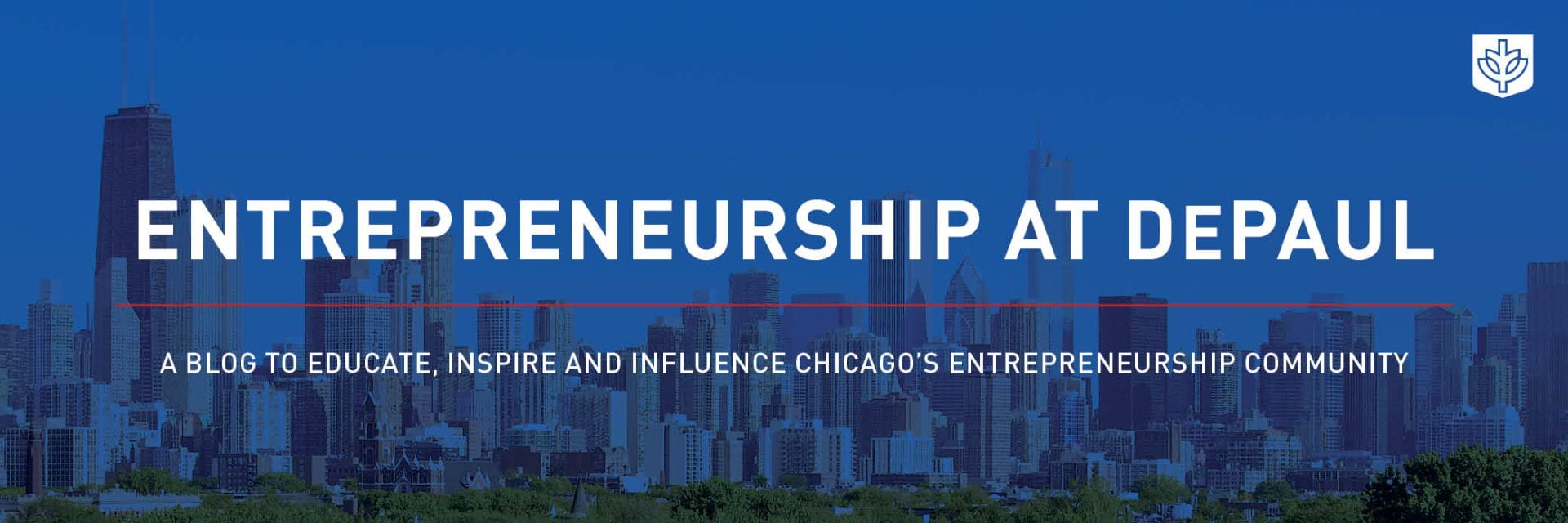In his article “A Theory of the Start-up Workforce” [https://journals.aom.org/doi/10.5465/amr.2023.0174], recently published in the Academy of Management Review, Dr. James Bort, Assistant Professor of Entrepreneurship at DePaul University, explores how early-stage employees become influential co-constructors of entrepreneurial opportunities rather than just passive participants in a company’s journey.
The Unique Value of Start-up Experience
Start-ups offer students a distinctive learning environment that traditional internships cannot match. When entrepreneurial opportunity narratives are still evolving, even entry-level team members can make meaningful contributions. Unlike at established companies, students in start-ups can:
- Directly influence product development and business strategies
- Take on responsibilities that exceed their experience level
- Develop rapid adaptability as they navigate changing priorities
- Build close relationships with founders and executives
These experiences help students craft compelling career narratives that demonstrate their ability to create value, not just fulfill assigned tasks. The skills developed in a start-up environment—adaptability, problem-solving, and creative thinking—are precisely what employers across all sectors increasingly value.
The Value of Start-up Experience in Action
Building on these valuable skills, the Coleman Entrepreneurship Center’s internship program offers students a chance to immerse themselves in the dynamic world of start-ups. Here, students move beyond typical intern duties, directly contributing to business growth. In the following, three students share how their start-up experiences have shaped their skills, perspectives, and career goals.
Nikita Nese: Blending Marketing and Business Strategy in Start-ups
During her internship at Qilo, a data analytics start-up, Nikita Nese jumped headfirst into the world of business management, marketing, and branding. Working closely with the CEO, she helped shape Qilo’s brand identity and rolled out marketing campaigns that made an impact. She tackled the challenge of making complex electrical grid data more accessible and boosted the company’s digital presence. Beyond the office, she represented Qilo at industry events, expanding her network and growing her confidence in high-stakes business settings. This hands-on experience fueled her passion for entrepreneurship and marketing strategy. Now, as the Director of Social Strategy and Communications for a DePaul student organization, she’s sharpening her skills and connections, gearing up to launch her own consulting venture.
Danielle Nickaf: Driving Policy Innovation at mHUB
Danielle Nickaf’s summer at mHUB Chicago, a hub for hard-tech entrepreneurs, was all about pushing boundaries and embracing challenges. Growing up in a family of entrepreneurs in Nigeria, she knew firsthand the obstacles businesses face and wanted to make an impact. At mHUB, she took on an independent research project aimed at improving programs, diving deep into policy analysis and organizational strategy. The fast-paced, optimistic culture pushed her to think outside the box and develop creative solutions. Now, as a Graduate Research Assistant at DePaul’s School of Public Service, she’s further honing her research skills with a goal of shaping policies that drive social change. Her experience at mHUB reinforced her belief in using data-driven analysis to make a difference, and she’s excited to bring that mindset into her career.
Hari Deepika Mutta: Turning Financial Data into Business Strategy
For Hari Deepika Mutta, interning as a Junior Financial Analyst at Vencora was a game-changer. With a background in computer science and experience as a Systems Engineer, she was eager to apply her technical skills in a financial setting. At Vencora, she transformed raw financial data into meaningful insights, crafting reports that helped guide strategic decisions. Seeing firsthand how data analysis influences financial strategies made everything she’d learned in class feel real. This experience not only deepened her understanding of financial reporting but also gave her the confidence to navigate the business world. Now, as she actively pursues roles as a Business Analyst, she sees this internship as a key stepping stone toward making her mark in business analytics.
Bridging Theory and Practice at the Coleman Center
At DePaul University’s Coleman Entrepreneurship Center, we recognize the transformative potential of start-up experience. Our internship program strategically places students in nascent firms where they can become co-constructors rather than just cogs in a corporate wheel. This program, facilitated by Emily Doyle, doesn’t just connect students with employment opportunities—it provides them with a laboratory to apply entrepreneurial concepts in real time.
By participating in the Coleman Center internship program, students gain perspectives that fundamentally reshape their career aspirations and professional capabilities. For many, this experience becomes the differentiating factor that launches their careers– whether they launch ventures of their own or bring entrepreneurial thinking to established organizations.
To learn more about getting involved in the Coleman Center’s start-up internship opportunities, visit our website, where applications for the summer internship program open every spring to students across all majors and colleges at DePaul University.
Contributor Bio

James Bort, PhD, is an Assistant Professor at DePaul University. You can read more about his work here.
